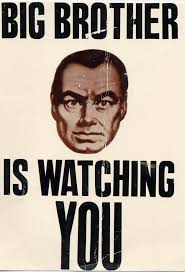CW: The DEA did this to me. Was it in my driveway? Most likely. The real question is why do they have the right to touch my car or anything else I own without evidence of guilt? Or a better question is why is the Federal Government wasting resources playing cloak and dagger for cannabis? Last time I checked we were trillions in debt and people were outraged over government spending. How do we continue to pay for this type of bullshit and let education go unfunded. Our country is morally challenged to say the least. We spend bazillions on the military, law enforcement, and prisons- and my kid has to bring his own toilet paper to school. WTF?
These ass-clowns continue to waste resources on cannabis enforcement and drug reconnoissance, but they have not slowed down drug use, trafficking, or crime one iota. That is sad. I believe that if after 40 years your mission is a complete failure, maybe it is time to reevaluate the mission….Just saying.

In a bizarre and unsettling decision, a federal court has ruled that government agents may sneak onto your property, put GPS devices on your vehicles, and follow you around 24/7 — without bothering to obtain a search warrant.
The U.S. Court of Appeals for the Ninth Circuit, which covers California and eight other western states, issued the ruling — which basically means the government can monitor you anytime that it wants — in a case involving a suspected marijuana grower, reports Linda Young at All Headline News.
Among the biggest casualties of the court’s ruling is the Fourth Amendment to the U.S. Constitution, part of the original Bill of Rights, which just took some major damage. The Fourth Amendment states:
The right of the people to be secure in their persons, houses, papers, and effects, against unreasonable searches and seizures, shall not be violated, and no Warrants shall issue, but upon probable cause, supported by Oath or affirmation, and particularly describing the place to be searched, and the persons or things to be seized.
According to the unprecedented — and scary — ruling, you do not have any reasonable expectation of privacy in your own driveway, and no reasonable expectation that the government isn’t tracking all your movements, reports Adam Cohen at Time.
Warrantless GPS tracking now joins warrantless wiretaps and police arrests of people who photograph them on the growing list of activities that once, not so long ago, would have been unthinkable and unlawful on the part of the United States government.
The ruling, which came before the court via the Drug Enforcement Administration’s 2007 arrest of Juan Pineda-Moreno, an Oregon resident they suspected was growing marijuana in California, has already been upheld at the Federal level.
“It is a dangerous decision,” Time magazine warns, “one that, as the dissenting judges warned, could turn America into the sort of totalitarian state imagined by George Orwell.
“It is particularly offensive because the judges added insult to injury with some shocking class bias: the little personal privacy that still exists, the court suggested, should belong mainly to the rich,” said Cohen in Time.
Federal agents had sneaked onto Pineda-Moreno’s property in the middle of the night and attached a GPS tracking device to his Jeep’s underside in the driveway, a few feet from his trailer home.
After Pineda-Moreno challenged the DEA’s actions, a three-judge panel of the Ninth Circuit ruled in January that it was all perfectly legal. Even more disturbingly, a larger group of judges on the circuit, who were subsequently asked to reconsider the ruling, decided this month to let it stand.
Pineda-Moreno eventually pleaded guilty to conspiracy to grow marijuana, and is now serving a 51-month sentence, according to his lawyer.
The court’s decision goes against the long tradition of courts holding that people have a reasonable expectation of privacy in their homes and in the “curtilage,” a legal term for the area around the home.
“The government’s intrusion on property just a few feet away was clearly in this zone of privacy,” Time points out.
The judges, in tortured and almost unbelievable “logic,” explained that Pineda-Moreno’s driveway was not “private.” It was open to strangers, they claimed, such as delivery people and neighborhood children, who could wander across it uninvited.
“I guess that means if the neighbor kids can get into your yard, it’s also fair game for federal agents with no warrant as well,” said Tina Trimble Belliston at The North Star National.
Chief Judge Alex Kozinski, who dissented from this month’s decision refusing to reconsider the case, pointed out the only homes not open to strangers are the residences of wealthy people. The court’s ruling, he said, means that people who protect their homes with electric gates, fences and security booths have a large protected zone of privacy around their homes.
People who can’t afford such barriers have to put up with government agents sneaking around at night, according to the ruling, Kozinski said.
“There’s been much talk about diversity on the bench, but there’s one kind of diversity that doesn’t exist,” the Reagan appointee said. “No truly poor people are appointed as federal judges, or as state judges for that matter.”
Kozinski said the judges in the majority were guilty of “cultural elitism” for favoring the rich in expectations of privacy. Everybody may be equal under the law in the United States, but some are apparently a lot more “equal” than others.
As pointed out by Time, the damage doesn’t stop at that point.
The court went on to make a second terrible decision about privacy: That once a GPS device has been planted, government agents are free to use it to track people without getting a warrant.
A high-stakes, major battle is playing out in the federal and state courts over this issue. If government agents are allowed to track anyone they want with secretly planted devices anytime they want — without having to even ask a court for a warrant — “we are one step closer to a classic police state,” Time magazine says.
“1984 may have come a bit later than predicted, but it’s here at last,” Judge Kozinski lamented in his dissent, which called the government’s tactics “creepy” and “underhanded.”
“I think it is Orwellian,” said Marc Rotenberg, executive director of the Electronic Privacy Information Center, which advocates for privacy rights, reports Dugald McConnell at CNN.
“If the courts allow the police to gather up this information without a warrant, the police could place a tracking device on any individual’s car — without having to ever justify the reason why they did that,” Rotenberg said.
The issue is likely to eventually end up in the U.S. Supreme Court, since some other courts have come to different conclusions from the Ninth Circuit’s. The influential U.S. Court of Appeals for the District of Columbia Court, for instance, ruled this month that tracking for an extended period of time with GPS is an invasion of privacy that requires a warrant.
Source: http://www.tokeofthetown.com/2010/08/court_allows_warrantless_gps_tracking_in_marijuana.php#
